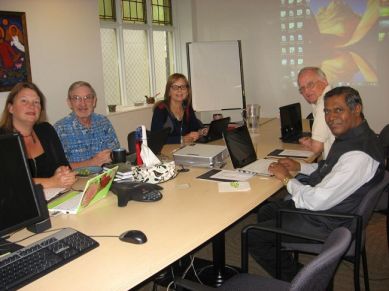Arabic is Top 4 Requested Language for Communication Rights Publications: WACC Survey

Communication rights advocates in a Christian-based organization say Arabic is the fourth-most requested language for communication rights publications after English, Spanish and French.
Results of a survey of members and partners of the World Association for Christian Communication were presented on Friday at the group's Executive Meeting in Toronto.
"This underlines the need for WACC to consider publishing resources in Arabic particularly in its series of No-Nonsense Guides," the organization said in a statement.
The guides touch on various topics including Internet access regulation, women as decision-makers, voices of the poor, the right to information, media watchdogs, voices of people affected by climate change, communication rights, technology and social justice, gender inequality and HIV/AIDS, digitization of the world, and peace journalism.
http://www.waccglobal.org/en/resources/no-nonsense-guides.html
Additional Findings
The survey also found communication rights can strengthen participatory development and facilitate achieving the anti-poverty Millennium Development Goals.
It found 82 percent of respondents recognized the link between communication rights and participatory development, but could benefit from more focused resources.
The survey found most people perceived communication rights in a framework set many decades ago, according to responses to a question based on Article 19 of the Universal Declaration of Human rights about the relationship between communication rights and human rights.
The survey found recent additions to communication rights such as the right to memory and the right to silence have not yet been taken up.
The survey is part of the group's Strategic Plan 2012-2016 which found the need to map and better understand the extent of communication rights knowledge among members and partners.
"The results provide a strong basis on which WACC will provide its network with training, tools and support to undertake advocacy activities in the area of Communication rights", said WACC General Secretary, Rev. Dr Karin Achtelstetter.
The survey was conducted in the group's working languages: English, Spanish and French.